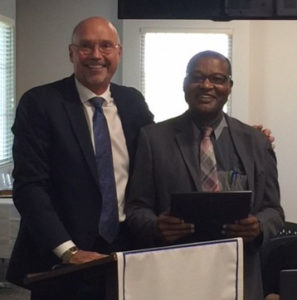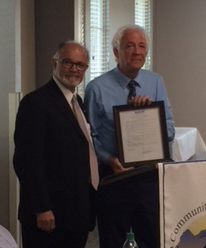Retirees Honored at June Board of Trustees Meeting



The Board of Trustees honored the 2017-2018 YCCD Retirees at the June Regular Board meeting. The 17 retirees represented a total of 371 years of service at YCCD. Congratulations to all!
2017-2018 Retirees Pictured:
Dr. Alfred Konuwa, WCC, VP Academic & Student Services
Dr. Robert Mathews on behalf of Parviz Parsafar, YC, ESL Faculty
2017-2018 Retirees not pictured:
Dianne Detmold, YCCD, Computer Help Desk/Operations Technician
Patrick Meleski, YCCD, Computer/Network Services Supervisor
Rosa Fowle, YCCD, Senior Buyer
Eileen Schmidtbauer, YCCD, Administrative Secretary II
Lori Hjellum, YCCD, Custodian
Danny Manzanares, YCCD, Custodian
Carol Swanson, LCC, Student Services Technician
Peggy Alexander, LCC, General Studies/ESL Faculty
Pamela Bordisso, LCC, Counselor
Ramiro Canto-Lugo, YC, Foreign Language Faculty
Leah Eneix, YC, FC/ILP Specialist
Vicki Machado, YC, Nursing Faculty
Michael Morse, YC, Applied Science Faculty
Sheila Scroggins, YC, Nursing Faculty
Angela Willson, YC, Rad Tech Faculty/Coordinator
YCCD 2018-2019 Tentative Budget
The 2018-19 tentative budget was presented and discussed in the DC3 and Board of Trustees’ meetings in June. The final budget will be adopted in September. This article describes a synopsis of the presentation.
The tentative budget includes the following revenue assumptions as listed below:
- District is expected to be funded at the 7,626 FTES level;
- A COLA increase of 2.71% is provided;
- No enrollment growth is projected;
- One-time Base Allocation Funding is contingent on Funding Formula ($685K);
- Enrollment fee remains constant at $46.00 per credit unit; and
- State mandated ongoing reimbursements and lottery income remain flat.
Ongoing general fund (unrestricted) revenues and expenditures are tentatively budgeted as follows:
| Beginning Balances and Revenues | $57.5M | |
| Expenditures | $(54.1M) | |
| Ending Balance | $3.4M | 6.29% |
| Designated Fund Balance | $(648,475) | |
| Undesignated Fund Balance | $2.7M | 5.09% |
Chancellor Houston noted that the tentative budget is essentially a placeholder budget for the upcoming year as the authoritative state budget was not yet available. The tentative budget was modeled on the current funding formula and is not balanced. In anticipating the approval of a new funding formula, Chancellor Houston did not feel it prudent to make cuts to programs and expenditures in order to achieve a balanced budget under the current formula while anticipating the new funding formula and changes in apportionment. The tentative budget was adopted only so that spending can occur on July 1. The final budget in September will reflect the adopted state budget. Chancellor Houston and Vice Chancellor Brewington will work closely with the Board’s Finance Committee in the coming months to firm up the Board’s budgetary guidelines and bring a balanced budget to the Board in September.
The full budget presentation can be found here: http://bit.ly/18-19TenBudPres
Governor Adopts 2018-2019 California State Budget
Governor Brown signed the 2018-19 California State Budget, with no budget item vetoes, at the end of June with an effective date of July 1st. The final plan contained significant changes for community colleges, including a new funding formula and the creation of a new online college.
The budget represents a significant investment in the state’s public higher education segments, including the California Community Colleges, and the students of California. Investments in the California Community College system includes:
| Investment Area | Increase |
| Base Augmentation for Apportionment | $151.3M |
| Cost-of-Living for Total Apportionment Growth | $173.1M |
| Support of Hold Harmless Provisions and Ensure District Growth | $58.7M ($35 million one-time) |
| Three Years Declining Enrollment (earned back) | $138.7M |
| 1% Enrollment Growth | $59.7M |
| Unused Growth provided in 2016-2017 | $58.7M |
| California Online Community College | $100M one-time $20M ongoing |
| Student Success Completion Grant | $40.7M |
| Full-Time Faculty Hiring | $50M |
| Part-Time Faculty Office Hours | $50M |
| K-12 Strong Workforce Program | $164M |
| California College Promise (AB 19 Implementation) | $46M |
| Apprenticeship Programs | $36.5M one-time $22.7M ongoing |
| Online Education Initiative Completion Grants | $35M |
| Adult Education Program | $26.6M (includes COLA adjustment and $5 million for data collection/accountability system) |
| Financial Aid Technology Improvements | $13.5M one-time $5M ongoing |
| Legal Services for Undocumented and Immigrant Students, Faculty and Staff | $10M |
| Reentry of Incarcerated Individuals Program Grants | $5M |
The 2018-19 budget provides the California Community Colleges with a total increase of $609 million (4 percent) and continues to keep student fees low, promote new technology and innovation, and improve graduation rates.
The new funding formula, replacing the state’s decades-old community college apportionment funding, provides supplemental funding to those districts that serve low-income students and provides funding to districts for each student who meets specified student success metrics, including completion of a degree or certificate with additional funding for low-income students. As the formula is implemented, no district will receive less funding than provided in the 2017-2018 year and the formula will be implemented over the next three years. Corresponding with the implementation of the Student-Focused Funding Formula, an advisory committee will be established to monitor the implementation of the funding formula and report back to the Legislature and Administration on potential improvements.
Additionally, the budget creates the California Online College. This college aims to provide an opportunity for prospective students to improve their economic success. The California Online College will:
- Develop flexible course scheduling not tied to the academic calendar and specialized support services;
- Recognize students’ skills and learning acquired from work experience or prior learning through the delivery of competency-based education;
- Develop at least three program pathways by July 1, 2019, and enroll students by the last quarter of 2019. The Chancellor’s Office has announced the first two pathways will be an information technology credential and a medical coding credential;
- Report to the Legislature on student outcomes, including employment and earning gains, after completion of programs, and share promising practices in online teaching and learning with all community colleges.
You can access the full Department of Finance Budget Summary here: http://govbud.dof.ca.gov/FullBudgetSummary.pdf
Governor’s Office Hosts Forum on Higher Education Master Plan
In July, Chancellor Houston joined representatives from all segments of California higher education, as one of two community college leaders, at a “Stakeholder Forum on the Master Plan for Higher Education in California”. The forum was hosted by the Governor’s Office of Planning and Research and facilitated by the Governor’s Senior Policy Advisor.
The forum focused on the relationship between the Master Plan and questions surrounding student and workforce readiness in order to inform a review of the Master Plan following the supplemental reporting language included in the 2017 budget act. Specific topics of discussion and presentations included a historical perspective of the Master Plan for Higher Education in California, preparing students for Higher Education, Higher Education and the 21st-Century workforce, and institutions of Higher Education preparedness for 21st-century students.
Senate Bill 577 – Teacher Preparation
Senator Bill Dodd introduced a bill in 2017 that would authorize community college district to offer a teach credentialing program, subject to accreditation by the California Commission on Teach Credentialing and approval by the California Community College Board of Governors. The bill was pulled from the floor at the request of the author.
Chancellor Houston has continued to work diligently with community college leadership to propel this bill forward, hosting a conference call with interested stakeholders to discuss ways to repurpose the original SB 577 legislation as a means of advancing CSU and CCC partnerships for teacher preparation and credentialing.
SB 577 was heard in the June 19th Assembly Higher Education Committee where it was unanimously passed out of committee. Letters of support were solicited from numerous community college CEOs and County School Superintendents’. Opposition to amend the bill that strives to develop partnerships between community colleges and teacher prep programs by the CSUs and the Association of Independent Colleges and Universities were withdrawn.
The bill will proceed on to Appropriations where, if alternate funding solutions are not found, it will compete for resources in the coming budget year. On the chance funding is not available, supporters of the bill will work with the California Community College Chancellor’s Office to submit it as a budget priority in the 2019-2020 budget year.
For more information on the amended bill: https://leginfo.legislature.ca.gov/faces/billTextClient.xhtml?bill_id=201720180SB577
Chancellor Visits Brandman University’s Leadership Program
Chancellor Houston attended the 6th Annual Brandman University’s Ed.D. in Leadership program in June to learn more about the program. The Brandman University doctorate program combines online instruction with face-to-face support and integrates the latest theories from both education and organizational leadership including transformation leadership, collaborative relationships, political intelligence, strategic thinking, diversity, and creativity and sustained innovation.
Chancellor Houston met with the Dean and the Program Director to explore how program components might be leveraged for professional development for YCCD administrators, including specific online curriculum.
2018 Legislative Update
Bills of Interest
AB 1805 (Irwin)
This bill passed out of Assembly Education and will go to Assembly Appropriations. The bill would require a community college to inform students of their rights to access transfer-level coursework and of the multiple measures placement policies developed by the community college, as provided. The bill would require a community college to annually report to the Office of the Chancellor of the California Community Colleges the community college’s placement policies and placement results, and would require a community college to publicly post its placement results.
AB 1887 (Medina)
This bill passed Senate Education and will go to Senate Appropriations. The bill would authorize any student attending a campus of the California Community Colleges, the California State University, or the University of California who is exempt from paying nonresident tuition to a specified statute to serve on any board or commission established pursuant to the portion of the Education Code relating to higher education and that includes members who are students.
AB 1935 (Irwin)
This bill passed out of Senate Education and will go to Senate Appropriations. The measure would authorize community colleges to collect noncredit apportionment for supervised tutoring. The measure is sponsored by the State Chancellor’s Office. The State Chancellor’s Office intends to alter regulations that require a student to be referred to tutoring in order to qualify for apportionment. YCCD has submitted a letter of support for this bill to the State Chancellor’s Office.
AB 2449 (Arambula)
This bill passed Senate Education and will go to Senate Appropriations. The bill would provide for the commencement of terms of office relating to the election of members of governing boards of school districts and governing boards of community college districts on the 2nd Friday in December.
AB 2477 (Rubio)
This bill passed out of Senate Education and will go to Senate Appropriations. The bill would require the California Community Colleges and the California State University, and request the University of California, to designate a Dream Resource Liaison on each of their respective campuses to assist students meeting specified requirements, including undocumented students, by streamlining access to all available financial aid and academic opportunities for those students.
AB 2891 (Holden)
This bill would authorize community college districts to enter into dual enrollment agreements with charter schools. The bill was placed in the Assembly Appropriations suspense file and will be heard with the other suspense items on May 25th. The Appropriations analysis indicated that the fiscal effect could be in the high hundreds of thousands annually to extend courses to chart school students. The analysis also noted that this could be offset to the extent that students do not need to enter into remedial courses when moving onto college.
AB 2970 (Cooper)
The bill passed out of Senate Public Employment and Retirement and will go to Senate Judiciary. The bill would require that the date, time, and place of the employee orientation be confidential and not be shared with anyone other than employees or the exclusive representative.
AB 2990 (Low)
This bill passed out of Senate Education and will go to Senate Appropriations. The bill would require each campus of the California Community Colleges and the California State University, and each campus of the University of California if so directed by the UC Regents, to place a link on the campus website describing the availability of an exemption from mandatory tuition and systemwide fees for an eligible survivor of a state or local public agency firefighter or law enforcement officer who died in the line of duty.
AB 3101 (Carillo)
The bill passed the Assembly and Senate Education and will go to Senate Appropriations. The bill would require the Board of Governors, on or before July 31, 2019, to revise the CCCApply application and enrollment process so that only data that is required by the federal government, or that is otherwise necessary, as determined by the board, is collected during the process. The bill would require the board, to the extent that data can be collected from the student at a later time, to delay the collection of that data until after the student is enrolled.
AB 3153 (Levine)
The bill passed the Assembly and will go to the Senate. The bill would make students who are eligible to receive Cal Grant A or Cal Grant B award eligible to receive a Summer Cal Grant award, in addition to receiving a Cal Grant A award or Cal Grant B award, for a total of two (2) summer terms of up to nine (9) units of enrollment, or the quarter equivalent, for purposes of pursuing timely completion of a baccalaureate degree at a public postsecondary educational institution. The bill would provide that Summer Cal Grant awards shall not be subject to or count against the four (4) years of full-time attendance eligibility limitation that applies for purposes of Cal Grant A award and Cal Grant B award renewals.
SB 577 (Dodd)
This bill was amended to establish the California Community College Teacher Credentialing Partnership Program to award up to three grants, in the amount of $500,000 each, to collaboratives, that would be comprised of at least one accredited teacher-credentialing, degree-granting higher education institution with a physical presence in this state and at least one community college, for the purpose of offering one or more teacher credential degree programs at participating community college or colleges. The bill would require these degree programs to be accredited by the commission’s Committee on Accreditation on the basis of standards of program quality and effectiveness. The bill would authorize priority for the receipt of grants to be given to a collaborative that is located in areas of the state with low rates of K-12 credentialed public school teachers, demonstrates that its degree program or programs meet the documented labor market demand of its target region, and identifies the resources necessary to offer its degree program or programs. The bill previously would have authorized community college districts to offer teacher credentialing programs.
SB 968 (Pan)
The bill passed the Senate and will go to the Assembly. The bill would require the Trustees of the California State University, the governing board of each community college district, and request the Regents of the University of California, to hire one-full time equivalent mental health counselor per 1,500 students at each of their respective campuses to the fullest extent consistent with state and federal law.
Chancellor’s Calendar

July 4 – Independence Day (District Holiday)
July 6 – Summer Closure
July 9 – Stakeholder Forum on California Higher Ed Master Plan
July 10 – Chancellor’s Cabinet
July 10 – Meeting with Student Trustees
July 11-12 – Board Planning & Development Session
July 12 – Meeting of the Governing Board
July 13 – Summer Closure
July 13 – Wheelhouse Lecture – Robert Keegan (“Immunity to Change”)
July 17 – Chancellors Cabinet
July 18 – Finance Committee Meeting
July 18 – Meeting with Trustee Wheeler
July 19 – Meeting with Trustee Sandy
July 19 – Meeting with Trustee Tafoya
July 19 – Meeting with WCC President
July 20 – Summer Closure
July 23 – Meeting with Trustee Pasquale
July 25 – Meeting with YC President

